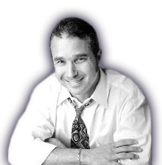The Old-Age, Survivors, and Disability Insurance (“OASDI”) Program, popularly known as “Social Security,” is a federal government program that pays monthly income to insured workers and their families at retirement, disability, or death. The OASDI program is split into two parts, the Old-Age and Survivors Insurance (“OASI”) and Disability Insurance (“DI”) programs. The OASDI Program is the largest social welfare program in the United States, providing coverage to about one in five Americans.
Eligibility to File Claims
However, it isn’t automatically granted, for a worker to qualify for benefits, she must:
- Be insured for disability under the Social Security Act (which requires the worker to receive a certain number of credits based on the amount of Social Security taxes paid);
- File a claim for benefits;
- Meet the definition of disability outlined in the Act;
- Complete the mandatory five-month waiting period; and
- Have not yet attained retirement age (which can vary depending on the year the person was born).
Standard Awards and Incidence of Disability
The OASDI Program is run by the government which means it is subject to political whims, public opinion, and taxes. The wage replacement rate has oscillated from as high as 70 percent to the current average of 40 percent. The wage replacement rate is the amount of disability that is paid to a particular claimant based on their income as a worker prior to their injury.
The OASDI Program was also expanded to include mental disabilities which substantially increased the number of claimants. OASDI claimants tend to rise and fall with the economy, as it enters a recession, the number of claimants increases and vice versa.
Substantial Gainful Activity
A common factor that results in disability claims being denied is if a person, in the determination of the Social Security Administration (“SSA”) has a substantial gainful activity. A substantial gainful activity is two issues. First, “substantial” which means it involves an act of substantial mental or physical work. Second, “gainful activity” means an activity for compensation or profit. Combined, this term means that an applicant is able to work.
If the SSA determines, either at the application stage or during a review, that the recipient of the aid can or is performing a substantial gainful activity, the SSA will terminate benefits. The recipient is permitted to appeal the decision within the SSA and to a federal court.



